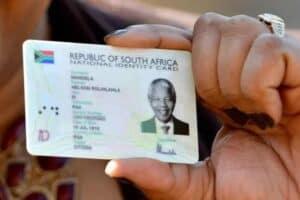The party claims children are assumed to be illegal immigrants and forced to try prove they are South Africans, including by way of DNA tests.

The Democratic Alliance (DA) says that the department of home affairs could be denying as much as 1 in 5 South African children an education.
This follows a question posed in parliament by the DA’s Adrian Roos, who wanted to know why children are still being denied access to education due to not having documentation and what steps are being taken to resolve this.
“Home affairs often talking about this issue as an issue of undocumented migrants, but not many know about the widespread problems we have with undocumented South African children,” he told The Citizen.
He cited examples, such as a girl whose mother passed away and father being untraceable. She has reportedly been sent from pillar to post by home affairs to prove she is South African and to get a birth certificate.
In the meantime, he said she was thrown out of high school for being undocumented.
He said there had been cases of children forced to have unaffordable DNA tests to prove they were South African.
“The lack of birth certificate leaves them as outsiders in their own country, excluded from any social assistance,” he said in a statement.
In response to his parliamentary question, Deputy Home Affairs Minister Njabulo Nzuza said immigration services had been instructed not to force children to be taken out of school for being undocumented, but Roos said this wasn’t good enough.
“This does not stop the schools from rejecting undocumented children, many of whom are in fact South African children who never had an opportunity to receive their documentation. It simply demonstrates a complete lack of empathy for their plight,” Roos said.
READ MORE: ’15 million’ people in SA are unregistered, and many are ‘stateless children’
The DA wants the department of basic education to issue a circular clearly stating that children cannot be denied access to basic education due to a lack of documentation.
The party cites United Nations Children’s Fund (Unicef) figures as saying that an estimated 5% of South African children don’t have birth certificates.
The party says the official 2018/2019 figures paint an even worse picture, with 186,000 children having their births registered as late as 14 years old and 25,000 registered after the age of 15 – a total of 18% of all birth registrations, which is where the party gets the “1 in 5” figure from.
“The South African Human Rights Commission furthermore states that the vast majority of learners adversely impacted by a lack of documentation are poor black learners from predominantly rural areas,” said Roos.
“Several challenges lead to these late registrations including cultural reasons or where the parents cannot be located or are deceased. This leads to unfair discrimination as the affected children don’t personally have the power to correct the situation.
“The fact is that South African children are being punished for the inability of home affairs to manage refugees and asylum seekers as children without identification who are born to South African parents are also perceived to be ‘illegal immigrants’.”
Roos cites former deputy home affairs minister Fatima Chohan as saying in parliament: “We are going to make screening more difficult because most [of those] who are taking up late registrations are failed asylum seekers who have not left the country. Then [they] try their luck for South African citizenship through late registration of birth applications.”
Deputy Basic Education Minister Reginah Mhaule responded to Roos’ question in parliament on Tuesday simply by saying the department gave a three-month grace period to children without birth certificates.
The DA wants the ministers of both home affairs and basic education to implement new measures to help those children who cannot access documentation within this period.
For more news your way, download The Citizen’s app for iOS and Android.






